Is Turmeric Curcumin The Best Herb for Inflammation, Immune Function, or Digestive Problems?
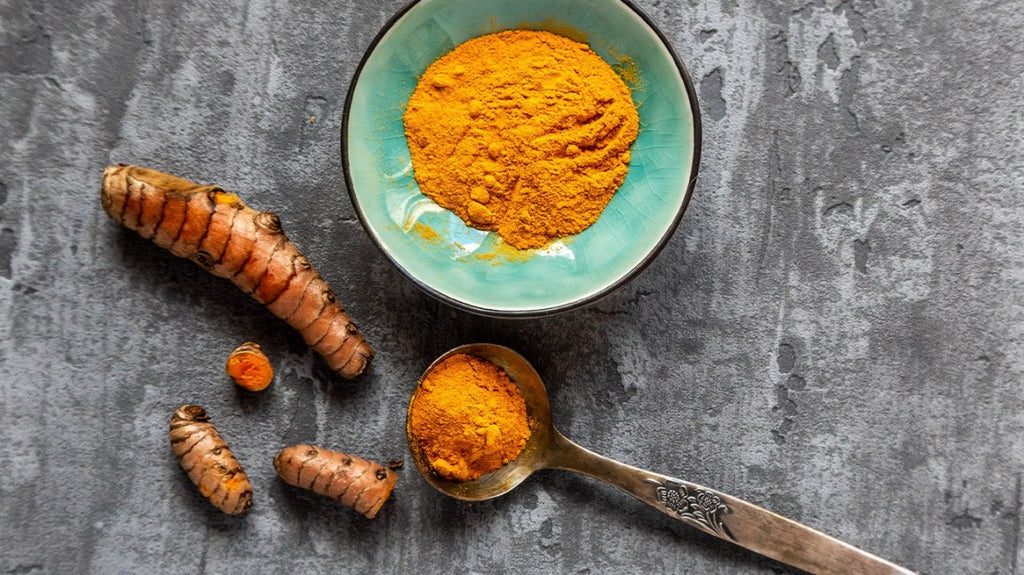
Curcumin, one of the chemical compounds in turmeric, proves over and over in studies to have health benefits for nearly every part of our body. But is it as good as it claims? The magic bullet for stomach problems, or the miracle anti-inflammatory? Read on and we will give you the bottom line of precisely what curcumin can do for you.
Turmeric vs. Curcumin
Most of the time, supplements will combine turmeric and curcumin as one of the same. But, one is a plant, and the other is an isolated chemical.
Turmeric is a flowering plant, Curcuma longa, of the ginger family. It's closely related to ginger, containing similar herbal properties, spiciness, and heat. Both are native to the Indian subcontinent and Southeast Asia. The root of turmeric is used in Indian cooking, providing spiciness and the trademark yellow-orange color of curry. It gives a slightly bitter and peppery flavor to food. Turmeric is often used extensively in Ayurveda medicine.
Curcumin is a single chemical derived from the turmeric root and one of the principal curcuminoids of the ginger family. These curcuminoids are what provide the bright yellow color in turmeric and the healing benefits to our body.
Defining Curcumin – What Is Curcumin?
Curcumin is a tricky biochemical. In 2017, a review of more than 120 studies led researchers to believe “curcumin is an unstable, reactive, non-bio available compound and, therefore, a highly improbable lead” when it comes to medical applications.
We believe that's true when looking exclusively at curcumin – and excluded turmeric. Because most research focused only on the single chemical, they missed many of the enzymes, co-factors, and buffers that support curcumin when used as natural turmeric.
That is why good supplements use the whole food turmeric and measure the amount of curcumin provided rather than isolating a single chemical.
In addition, recent data suggest that the bioavailability (absorption capacity) of the isolated Curcuminoids can be greatly enhanced when combining it with Black pepper extract.
Thousands of research studies done on turmeric as a whole plant show its effectiveness. Research in the United States is finally catching up with that in India, China, and Russia for the use of turmeric.
We love how this food is getting recognized for the health benefits it can give people.
Perhaps its most potent ability is as an antioxidant. Not only does curcumin work as an antioxidant itself, but it also has shown the ability to boost the body’s own antioxidant enzyme potential.
Benefits of Curcumin in Food & Curcumin Supplements
Turmeric-curcumin helps many different issues. It is a powerful nutritional herb from which most people gain benefits. Let's take a look at some of the health issues that curcumin benefits.
Pain & inflammation

Whenever your body is damaged, it causes inflammation to help heal. This inflammation attracts the immune system to fight invaders, begins sealing wounds, and increases blood flow and nutrition to a particular area. In the short-term, these are all very beneficial. However, in the long term, inflammation can be extremely damaging.
One of curcumin's primary effect in the body is anti-inflammatory. In various studies it’s shown to match or exceed the power of most anti-inflammatory drugs on the market – and it does it without the side effects. It blocks the NF-kB molecule that triggers inflammation.
In a study of people who have rheumatoid arthritis, curcumin was even more effective than some of the top anti-inflammatory drugs at reducing inflammation and pain. Many people also report they feel curcumin improves their flexibility, although this has not been proven in study.
Improves digestion
In Ayurveda medicine, turmeric is one of the primary herbs for digestive problems. The antioxidant potential and anti-inflammatory properties make it ideal for helping irritable bowel syndrome, acid reflux, and low stomach acid. Some studies indicate that it may help leaky gut syndrome as well. Combining a healthy diet that includes lots of fruits and vegetables and turmeric goes a long way to improving your digestive system’s ability to repair itself.
Cancer
Curcumin has been shown in various studies to be beneficial in regards to cancer. Some studies show that it affects the rate of cancer growth and spread. It helps inhibit the growth of new blood vessels that supply the tumor with blood and nutrients.
In some cases, it also can cause apoptosis, or cell death, specifically in cancer cells. And, it may help prevent cancer, especially in the digestive system. In one study, researchers studied men with lesions in the colon that tend to turn cancerous. Using 4 grams of curcumin per day, there was a 40% reduction in lesions.
Improve brain function

Curcumin helps increase the brain-derived neurotrophic factor hormones that allow neurons in the brain divide and create new connections. Most brain disorders, including Alzheimer’s disease, link to this hormone being at depressed levels. Although curcumin hasn't been shown in any studies to directly help Alzheimer’s disease, dementia, or brain function, by increasing levels of this hormone, it may help improve your memory and slow progress of any brain-related disorders.
In particularly with Alzheimer’s disease, curcumin may help prevent the buildup of a protein called amyloid plaques. Curcumin cleared out many of these plaques and help prevent the buildup. It's unclear whether this aids people with Alzheimer’s disease or simply clears up one of the side effects.
Heart disease
In another case where curcumin has worked as well as some prescription medications, curcumin was found as effective as exercise and works as well as the drug atorvastatin to help lower heart disease. In addition to helping reduce oxidation and inflammation, both found with heart disease, curcumin might also help improve the function of the endothelium, the lining of the blood vessels in your body, especially around your heart.
One study showed that for people undergoing a coronary artery bypass, taking curcumin decreased the incidences of a heart attack in the hospital from 30% to 13.1% - a significant reduction.
Depression
The same brain-derived neurotrophic factor linked to Alzheimer’s disease and dementia also plays a part in depression. By helping boost levels of this hormone, curcumin may help reduce depression. Curcumin has limited ability to boost serotonin and dopamine; the depression of both hormones link to clinical depression. In a small study, curcumin was as effective as the prescription medication Prozac and the group that took both the Prozac and curcumin experience the best benefits.
Anti-aging
Curcumin is not going to make you look ten years younger, especially if you get the yellow coloring all over your fingers. Many of the problems linked above tend to make people feel and look older. Reducing inflammation, pain, and heart disease goes a long way in making people younger than their years.
Side Effects of Curcumin
When consumed as a food, turmeric is exceptionally healthy without any side effects, except in people who are allergic. However, when taking turmeric as a supplement, especially excessively, side effects start to arise. Generally, you should start with low doses of a turmeric supplement and work out slowly to the recommended dosage as discussed with your physician.
According to the Joint FAO/WHO expert committee on food additives, 1.4 mg per pound of bodyweight of turmeric is considered the acceptable daily intake. For a person at approximately 200 lbs, this equates to about 250 mg per day.
Some physicians and naturopaths disagree, citing various studies that show dosages of 3,600 to 8,000 mg per day and as much as 12,000 mg per day were tolerated without side effects.
Some of the side effects include:
- Allergic Reactions
- Stomach Pain
- Diarrhea
- Constipation
- Nausea
- Vomiting
- Kidney Stones
- Abnormal Heart Rhythm
Large doses of turmeric may cause erratic heartbeat, delusions, fever, upset stomach, and kidney stones. Turmeric may also irritate gallbladder problems and acid reflux.
Pregnant women should avoid turmeric as it is often included in herbal remedies to promote menstruation.
What Medications Should Not Be Taken With Turmeric?
You should avoid taking medications that lower blood sugar, lower blood pressure, thin the blood, or adjust liver function together with turmeric. You should also be cautious combining turmeric with therapeutic doses of herbs such as angelica, clove, garlic, gingko, ginseng, red clover, and willow.
Is Turmeric Bad For Kidneys?
Although there have been a few isolated cases of renal failure when taking excessively large doses of turmeric, the general trend of studies shows that turmeric may be beneficial for people who have kidney disease. However, if you have issues with your kidney function, you should discuss with your doctor your decision to take turmeric to avoid a complication.
Foods with Curcumin & How Much Curcumin Should You Have
Knowing how much turmeric to take daily should be a decision between you and your doctor. If you choose to take more than the recommended 1.4 milligrams per pound of turmeric per day, you risk side effects. Since most supplements are 500 mg doses or higher, you should discuss it with your doctor before taking turmeric. On the other hand, most naturopaths in medical doctors agree that taking 500 mg serving size per day is likely safe.
Unfortunately, if you want any appreciable doses of curcumin from food, you are going to need turmeric. Traces of curcumin are found in most foods of the ginger family, most brassica, and many herbs, although it is not enough to cause the specific benefits a supplement will give you. If you are going for maximum health benefits from your food, combine turmeric with lots of vegetables, herbs, and spices to get the maximum effect.
- Nutracare Team

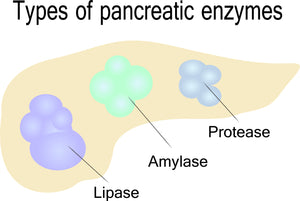

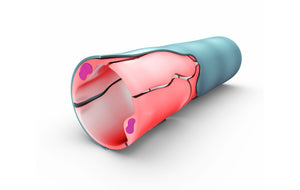
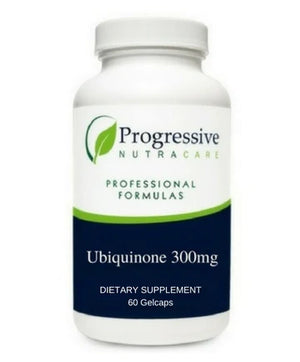
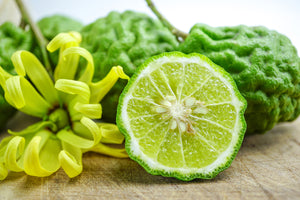
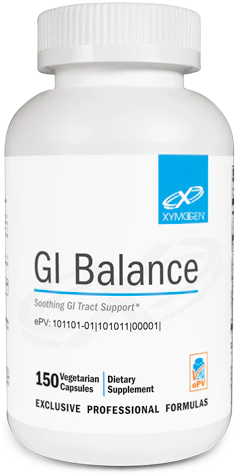
Comments 2
Marissa Tyler
Thank You for sharing such a nice and informative blog and your knowledge with us. The information you shared here is unique and informative which is very rear to see nowadays. So keep on sharing hope to see more from you.
turmeric for digestion
Arogya Dham
Thanks for sharing this blog regarding usefulness of turmeric in digestion purpose. I will definitely suggest my patients to follow your steps how to use turmeric for digestion purpose. Read More http://www.arogyadhamhospital.in/about-us.html